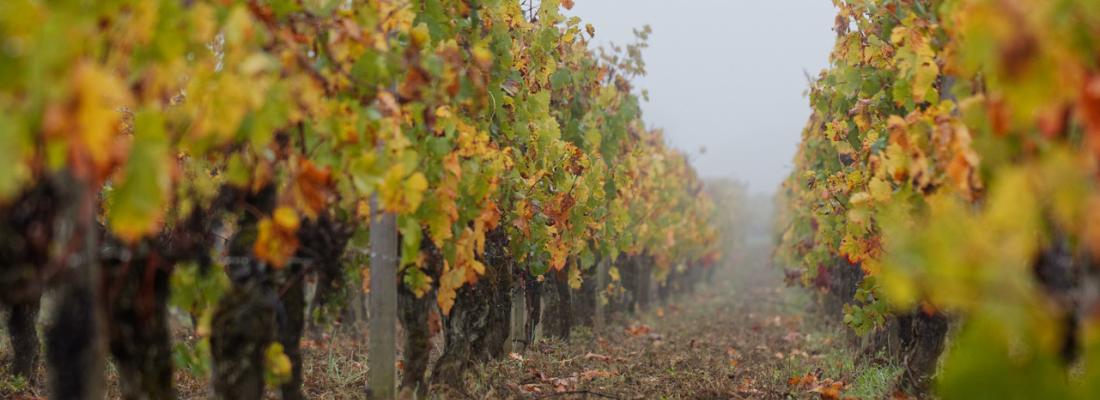Agroecology Reading time 4 min
Winegrowing without pesticides: launch of the VITAE project
Published on 25 October 2020

Winegrowing without pesticides is a big challenge for this emblematic crop. Moving away from pesticides requires multiple management solutions – biological regulation, immunity stimulation, genetic resistance, for example – each of which yields only partial effects. The goal is to move from a curative approach to an agroecological approach based on prophylaxis, monitoring and better resilience of winegrowing systems. Because these control methods are partially effective, they must be integrated into new protection strategies that maximize their combined effects while adapting them to local climates, socio-economic contexts, and market issues.
Towards agroecological wine-producing socio-ecosystems
Genetic resistance in vines is an essential lever to achieving zero-pesticide winegrowing. The use of disease-resistant grape varieties nevertheless raises crucial questions about the durability of resistance, the adaptation of new grape varieties to climate change, the quality of wines and their acceptance by consumers. All these questions are addressed by VITAE.
Regarding biocontrol, VITAE will seek to identify microbial consortia (bacteria, fungi, mycoviruses) that are antagonistic to vine diseases. The project will stimulate research on biocontrol products with original methods of action (activation/suppression of vine defenses, disruption of pathogen reproduction). Their interaction with plant physiology will be evaluated to better apply these solutions in the vineyard. Biocontrol solutions will address the full life cycle of pathogens including sexual reproduction.
This combination of pest management solutions is at the heart of VITAE. The aim is to empirically explore the combined field-to-landscape effects of solutions on trophic networks by incorporating the unintended effects on biodiversity. The performance of pesticide-free systems, from grape production (agronomic performance) to wine making (oenological and economic performance) will also be studied.
Lastly, VITAE addresses the determining factors of transition by identifying obstacles to the implementation of pesticide-free systems and structural change. Indeed, winegrowing without pesticides may lead to changes in regulations and to the information and labeling systems offered on the markets. VITAE will study the actual expectations of consumers regarding the elimination of pesticides, as well as the structural alternatives and economic and regulatory incentives that could support the transition. Interdisciplinary and integrative prospective work will be carried out with stakeholders to generate scenarios for the elimination of pesticide use at the sector and regional levels. These scenarios will help organizations and policy makers implement pesticide exit strategies with appropriate incentive programmes.
VITAE - “Cultivating the grapevine without pesticides: towards agroecological wine-producing socio-ecosystems” is a project involving 118 permanent staff, including 66 researchers from INRAE, the Université de Bordeaux, the Université de Bourgogne-Franche-Comté, Bordeaux Science Agro and Montpellier SupAgro. The Institut des Sciences de la Vigne et du Vin (ISVV) in Bordeaux, The Institut des Hautes Etudes de la Vigne et du Vin (IHEV) in Montpellier and the Institut Jules Guyot in Dijon constitute the multidisciplinary centres of the VITAE project.
Learn more about the “Growing and Protecting Crops Differently” priority research programme:
https://www6.inrae.fr/cultiver-proteger-autrement/
https://anr.fr/fr/detail/call/cultiver-et-proteger-autrement-appel-a-projets/
